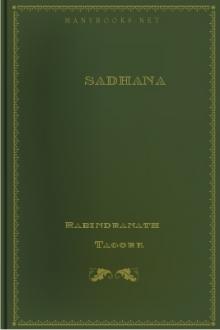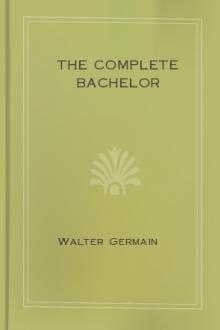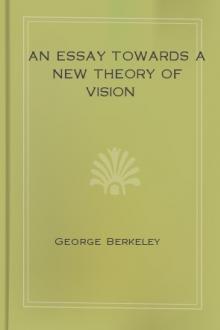Genre Philosophy. Page - 11

e action, motion, and generation: yet that the woman affords seed and effectually contributes in that point to the procreation of the child, is evinced by strong reasons. In the first place, seminary vessels had been given her in vain, and genital testicles inverted, if the woman wanted seminal excrescence, for nature does nothing in vain; and therefore we must grant, they were made for the use of seed and procreation, and placed in their proper parts; both the testicles and the receptacles of seed, whose nature is to operate and afford virtue to the seed. And to prove this, there needs no stronger argument, say they, than that if a woman do not use copulation to eject her seed, she often falls into strange diseases, as appears by young men and virgins. A second reason they urge is, that although the society of a lawful bed consists not altogether in these things, yet it is apparent the female sex are never better pleased, nor appear more blythe and jocund, than when they are satisfied this way; which is an i

lations are will appear in the following pages. The passive type of seer, on the contrary, remains in statu quo, open to impressions coming inwards towards the perceptive faculty, but making no effort towards either outward or inward searching. The success of each depends upon the observance of that method which is agreeable to their respective temperaments.
In regard to the qualifications which should supplement and sustain the natural aptitude of the seer or seeress, the following remarks may be of general service.
Self-possession and confidence in one's own soul-faculties must be the firm rock upon which all revelations should rest. The purer the intention and motive of the seer, the more lucid will be the visions accorded. No reliable vision can be obtained by one whose nature is not inherently truthful. Any selfish desire dominanting the mind in regard to any thing or person will distort the visions and render them misleading, while a persistent self-seeking spirit will effectually

linkwith the infinite, judges his activity by its movement and not bythe repose of perfection--the repose which is in the starryheavens, in the ever-flowing rhythmic dance of creation.
The first invasion of India has its exact parallel in theinvasion of America by the European settlers. They also wereconfronted with primeval forests and a fierce struggle withaboriginal races. But this struggle between man and man, and manand nature lasted till the very end; they never came to anyterms. In India the forests which were the habitation of thebarbarians became the sanctuary of sages, but in America thesegreat living cathedrals of nature had no deeper significance toman. The brought wealth and power to him, and perhaps at timesthey ministered to his enjoyment of beauty, and inspired asolitary poet. They never acquired a sacred association in thehearts of men as the site of some great spiritual reconcilementwhere man's soul has its meeting-place with the soul of theworld.
I do not for a mo

sed to me that I should take away the whole cauldron, with its contents, assuring me that I had polluted the milk it contained! "I only want a glass of milk and not a kettle of it," I said to him.
"According to our laws," the merchant answered me, "if any one not belonging to our caste has fixed his eyes for a long time upon one of our cooking utensils, we have to wash that article thoroughly, and throw away the food it contains. You have polluted my milk and no one will drink any more of it, for not only were you not contented with fixing your eyes upon it, but you have even pointed to it with your finger."
I had indeed a long time examined his merchandise, to make sure that it was really milk, and had pointed with my finger, to the merchant, from which side I wished the milk poured out. Full of respect for the laws and customs of foreign peoples, I paid, without dispute, a rupee, the price of all the milk, which was poured in the street, though I had taken only one glass of it. This was a less

to that death-in-life that is no life at all. It is the vampire that sucks out the good of us and leaves us like the rind of a squeezed-out orange; it is the cooking-process that extracts and wastes all the nutritious juices of the meat and leaves nothing but the useless and tasteless fibre.
Worry is a worse thief than the burglar or highwayman. It goes beyond the train-wrecker or the vile wretch who used to lure sailing vessels upon a treacherous shore, in its relentless heartlessness. Once it begins to control it never releases its hold unless its victim wakes up to the sure ruin that awaits him and frees himself from its bondage by making a great, continuous, and successful fight.
It steals the joy of married life, of fatherhood and motherhood; it destroys social life, club life, business life, and religious life. It robs a man of friendships and makes his days long, gloomy periods, instead of rapidly-passing epochs of joy and happiness. It throws around its victim a chilling atmosphere as do

wer into your Being. Will power into your work. Will power into your ambitions. Will power into your expressions. Will power into your words. And you shall be "a fellow workman with God, a master builder that needeth not to be ashamed." Your Will gives infinite clearness, infinite strength, infinite ideals, infinite aspirations, for infinite realities. Your Will tells you that if there is anything to-day that seems to you too good to be true, believe it, endeavor toward it, reach forth to receive it, and tomorrow it will be true. Will is the engine in the depths of the ship that drives it thru the buffeting waves and storm to the distant harbor. Will puts your back-bone where your wish-bone is now. Will puts iron into your blood, tightens up your vertebrate and makes you "a self-starter." You may have lost your battle, your Will stands ready for another better campaign. You miss an opportunity, your Will stands ready to open the door to a hundred new ones. Delay is the mother of most failures. One thing worse

is the attire for weddings--for the bridegroom, best man, ushers, and male guests; at afternoon teas, afternoon receptions, afternoon calls, afternoon walks on the fashionable avenue, garden parties (but not picnics), luncheons, and, in fact, at all formal or semiformal functions taking place between midday and candlelight, as well as at church on Sundays, at funerals, and in the park in London after midday.
Gray frock-coat suits are recent introductions from London, and have been worn at all the functions at which the black is required, but the latter is more conservative and in better taste. The afternoon dress is seldom worn in midsummer, morning suits being allowable at seaside and mountain-resort day functions.
Evening dress is the proper attire, winter or summer, on all occasions after candlelight. There are two kinds of evening dress, formal and informal.
Formal or "full" evening dress, as it is sometimes vulgarly called, consists of the evening or "swallowtail" coat of b

understood to-day, means a part of the subject and not the whole.
[Footnote: A series of waggish critics has evolved the following: "First psychology lost its soul, then it lost its mind, then it lost consciousness; it still has behavior, of a kind."]
The best way of getting a true picture of psychology, and of reaching an adequate definition of its subject-matter, would be to inspect the actual work of psychologists, so as to see what kind of knowledge they are seeking. Such a survey would reveal quite a variety of problems under process of investigation, some of them practical problems, others not directly practical.
Varieties of Psychology
Differential psychology.
One line of question that always interests the beginner in psychology is as to how people differ--how different people act under the same circumstances--and why; and if we watch the professional psychologist, we often find him working at just this problem. He tests a great number of individuals to see how they

g any other IDEA. If I do not perceive theredness or paleness of a man's face themselves, it is impossible I shouldperceive by them the passions which are in his mind.
11. Now from sect. 2 it is plain that distance is in its own natureimperceptible, and yet it is perceived by sight. It remains, therefore,that it be brought into view by means of some other IDEA that is itselfimmediately perceived in the act of VISION.
12. But those LINES and ANGLES, by means whereof some MATHEMATICIANSpretend to explain the perception of distance, are themselves not at allperceived, nor are they in truth ever thought of by those unskilful inoptics. I appeal to anyone's experience whether upon sight of an OBJECT hecomputes its distance by the bigness of the ANGLE made by the meeting ofthe two OPTIC AXES? Or whether he ever thinks of the greater or lesserdivergency of the rays, which arrive from any point to his PUPIL? Everyoneis himself the best judge of what he perceives, and what not. in vainshall all the M

all weak-mindedness is the direct outcome of this wool-gathering,castle-building, inattentive habit which is an extension of passivementation into useless channels of thought-force. Conscious attentionconcentrates and even specializes mental energy as the sun-glassconcentrates and intensifies the heat of the rays of the sun. Focus yourfull attention upon the thing to be done, take a keen interest in itsaccomplishment to the exclusion of all else, and you will obtainwonderful results. The man of developed, concentrative power holds in hishand the key to success, with the results that all his actions, voluntaryor involuntary, are pointed to the accomplishment of his object. Remembertherefore in conclusion:
(1) Concentration is perfect attention consciously directed to agiven point of achievement either objectively or subjectively.
(2) Concentration is consecration.
"What ever you do, do it with all your might. Do one thing at a time anddo it well." By concentration is meant the directing of